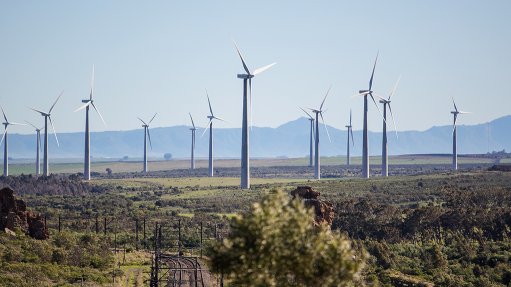
The South African Wind Energy Association (SAWEA) has applauded the numerous interventions outlined by President Cyril Ramaphosa to tackle South Africa’s energy crisis.
The association said on July 26 that it viewed the plan as being sharply focused on the key areas of concern, encompassing the improvement of State-owned Eskom’s energy availability factor through maintenance; bringing all available energy into the system quickly; accelerating new generation capacity; addressing bureaucratic blockages and liberalising the energy system.
By increasing the Renewable Energy Independent Power Producer Procurement Programme allocation for Bid Window Six (BW6) from 2 600 MW to 5 200 MW, Ramaphosa doubled the capacity outlined originally in this procurement round.
SAWEA said this was fundamentally needed to bring on new generation capacity quickly, and was in line with the sector’s advocacy efforts.
“To deliver on the required generation capacity, as outlined, we’d like to highlight the necessity to urgently address and prioritise the grid capacity challenges, as solutions will need to be advanced to ensure that the areas with the best wind and solar PV resources are unblocked,” SAWEA CEO Niveshen Govender said.
Further, in addressing the challenges of the BW5 procurement round, the association welcomed government's stated willingness to work alongside BW5 preferred bidders to accelerate the close of those projects.
SAWEA said it viewed the removal of the licensing cap for embedded generation projects as the next step to liberalise the energy market but that it would only make sense if it was applied to larger projects with the ability to wheel power through the network.
The association said environmental conservation remained a priority in the sustainable approach of including more renewable energy in the energy mix.
With this as the basis, SAWEA believed exemptions need to be allowed in the environmental framework processes to be applied to all technologies in areas of low environmental sensitivity.
“While we understand that these are temporary policy adjustments to overcome the effects of the energy crisis, we see this as the right steps to creating an open energy system that will attract more investment, create jobs and benefit the South African economy,” Govender said.